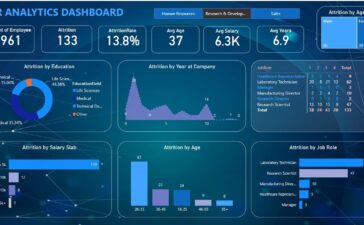Embracing Social Media Marketing Trends for SEO and Digital Success
In today’s digital landscape, the convergence of social media marketing and search engine optimization (SEO) has become a crucial strategy for building brand visibility and driving website traffic. Social media platforms have evolved beyond mere communication tools, becoming powerful vehicles for enhancing SEO efforts and achieving broader marketing goals. This article explores how integrating social media marketing with SEO can optimize your digital campaigns, improve lead generation, and enhance website conversion rates.
The Crucial Role of Social Media Marketing
Social media marketing has transformed from a supplementary marketing tactic into a fundamental component of a successful digital strategy. The increasing reliance on social media by consumers for discovering products and services has led online marketers to rethink their approach to social media. According to recent statistics:
- 76% of businesses use social networking to achieve their marketing objectives.
- Business retailers have seen a 133% increase in revenues after embracing social media marketing, highlighting its effectiveness.
- 40% of online shoppers in the U.S. use smartphones for in-store shopping, indicating the impact of mobile and social media integration.
- 71% of consumers trust feedback and recommendations from social media users more than direct brand promotions.
- Consumer reviews are often viewed as more credible than traditional marketing messages.
These insights underline the importance of integrating social media into your marketing strategy to build brand awareness and drive customer engagement.
The Impact of Social Signals on SEO
Social signals—likes, shares, comments, and recommendations—play a significant role in boosting SEO efforts. When social media users interact with your content, it sends positive signals to search engines, indicating that your website is relevant and valuable. This increased engagement can lead to higher search engine rankings. Here’s how social signals benefit SEO:
- Enhanced Search Engine Visibility: Higher levels of social engagement can improve your website’s authority and relevance in the eyes of search engines. Search engines are more likely to rank your site higher if it receives considerable social attention.
- Increased Brand Awareness: Social media allows users to share your content with their networks, expanding your brand’s reach and visibility. This increased exposure can lead to more inbound links and traffic, further boosting your SEO.
- Improved User Engagement: Active social media presence fosters greater interaction with your audience. This engagement can drive more traffic to your website and increase the likelihood of conversions.
Leveraging Social Media for Brand Building
Social media platforms provide an excellent opportunity for building and promoting your brand. Here’s how social media can enhance your brand’s presence:
- Growing Social Signals: A strong social media presence can lead to increased likes, shares, and mentions. These interactions help validate your brand’s credibility and relevance, contributing to better SEO performance.
- Promoting Company Branding: Social media allows users to share their positive experiences and recommend your brand to their networks. This word-of-mouth promotion can enhance your brand’s reputation and attract new followers.
- Harnessing Word-of-Mouth Advertising: Recommendations from peers often carry more weight than traditional marketing messages. By gaining more social media endorsements, your brand can leverage the power of word-of-mouth to reach a wider audience.
The Rise of Social Media Advertising
Social media advertising has become a vital component of digital marketing strategies. With consumers spending a significant amount of time on social media, it presents a valuable opportunity for targeted advertising. Key points include:
- Defining Measurable Goals: To maximize the effectiveness of social media advertising, set clear and measurable goals for your campaigns. This helps in evaluating the success of your advertising efforts.
- Integrating SEO and Social Advertising: Combining social media advertising with SEO strategies can enhance your overall marketing results. Ensure that your social media ads are optimized for search engines and aligned with your SEO goals.
- Understanding Customer Behavior: Use SEO analytics to gain insights into your target audience’s behavior and preferences. This information can guide the development of more effective social media advertisements.
- Optimizing Landing Pages: Ensure that your landing pages are optimized for both SEO and social media marketing. Incorporate social media buttons to encourage engagement and make your pages more attractive to visitors.
Embracing Image-Centric Content
Images are a powerful tool in social media marketing. Users are increasingly engaging with visual content, making it a valuable asset for brand promotion. Here’s how image-centric content benefits your marketing strategy:
- Enhanced Engagement: Visual content is more likely to be shared and liked by social media users. This increased engagement can boost your brand’s visibility and drive more traffic to your website.
- Improved SEO Performance: High-quality images can contribute to better search engine rankings. Ensure that your images are optimized with relevant keywords and alt text to enhance their SEO value.
- Increased Brand Exposure: Image-centric content can help your brand stand out on social media platforms. Use visually appealing images to capture the attention of your audience and promote your brand effectively.
Integrating Social Media with Email Marketing
Email marketing remains a powerful tool for lead conversion, and integrating it with social media can enhance its effectiveness. Here’s how to leverage social media in your email marketing strategy:
- Social Media Integration: Include social media links and buttons in your email campaigns to encourage recipients to connect with your brand on social platforms. This integration can drive more engagement and expand your reach.
- Promoting Brand Updates: Share updates and promotions from your email campaigns on social media. This approach can increase visibility and drive more traffic to your website.
- Enhancing Lead Conversion: Social media presence can help build trust and credibility with potential leads. When they see your brand in their social feeds, they are more likely to make a buying decision.

Conclusion
Integrating social media marketing with SEO strategies is essential for achieving digital marketing success. By leveraging social signals, optimizing social media advertising, embracing image-centric content, and integrating social media with email marketing, businesses can enhance their online presence, drive more traffic, and improve conversion rates. As social media continues to evolve, staying updated with the latest trends and incorporating them into your digital marketing strategy will be crucial for staying competitive in the digital landscape. Embrace these trends to build a stronger, more effective marketing strategy and achieve your business goals.



